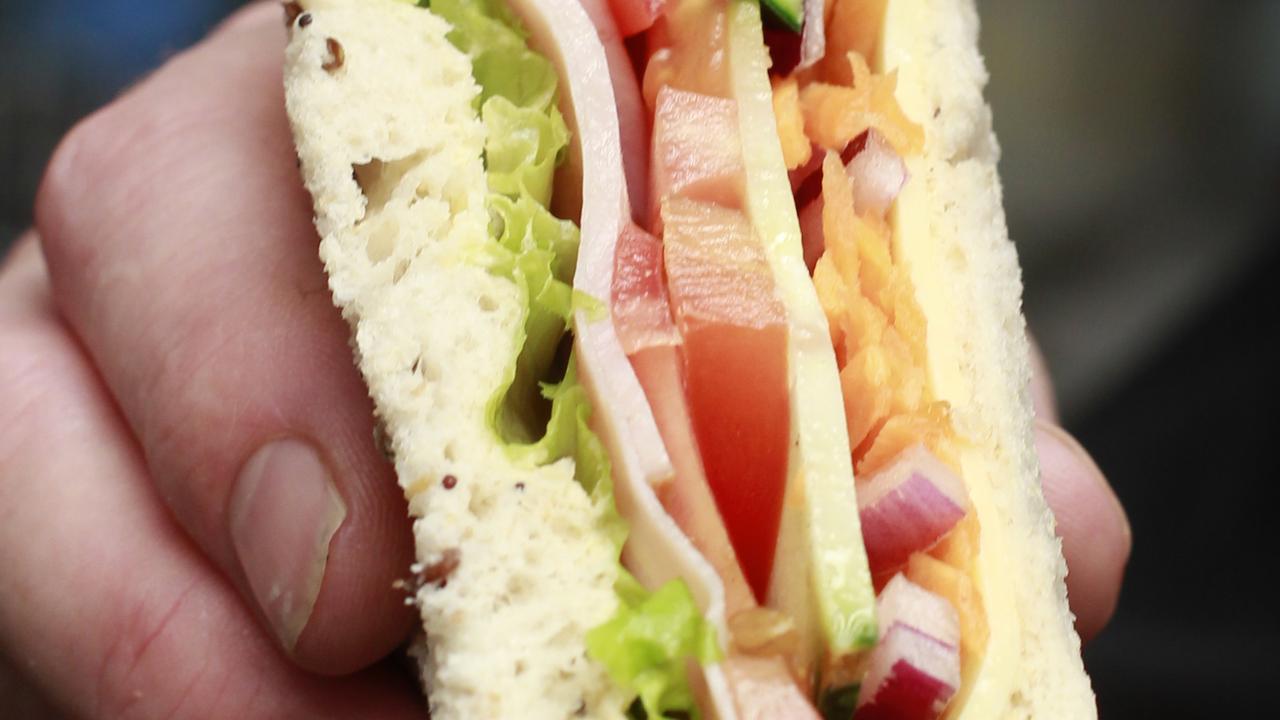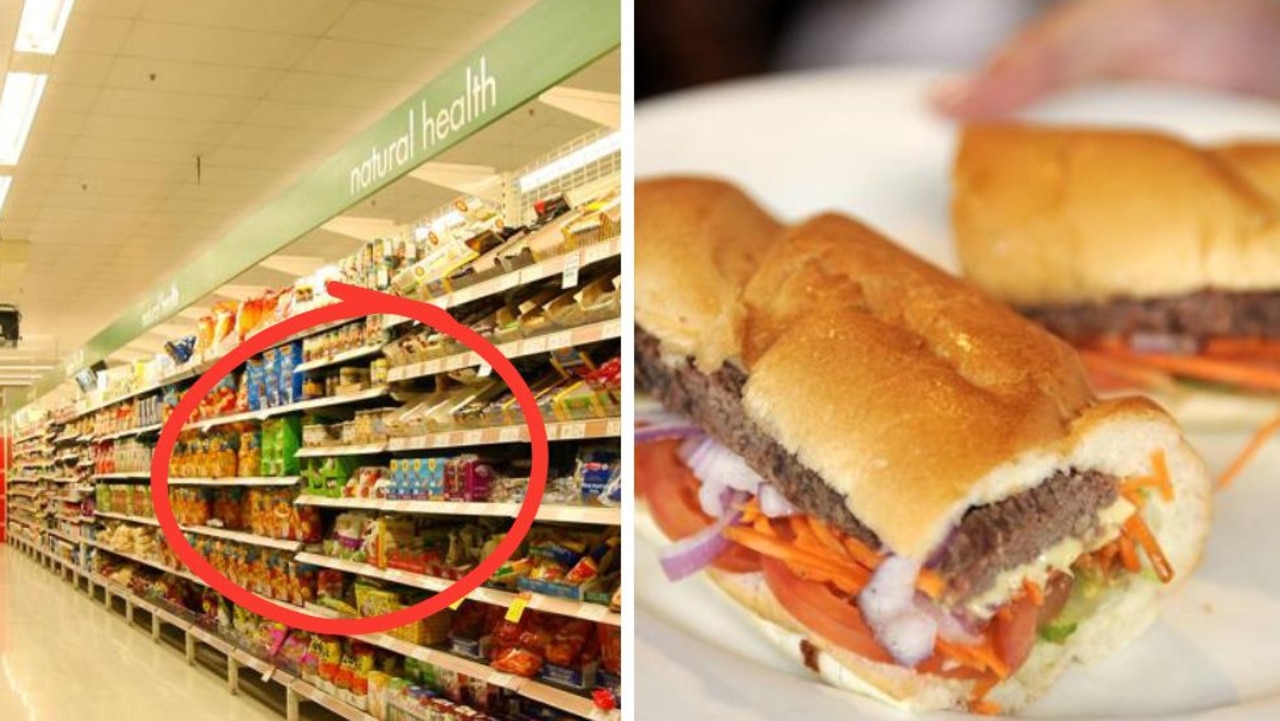Everything you need to know about the vegan diet
The vegan diet has had a lot of attention recently, but what is it? Here’s everything you need to know about the trendy diet.

Nutrition
Don't miss out on the headlines from Nutrition. Followed categories will be added to My News.
Australians are more interested in vegan living than any other nation.
Data from search engine Google reveals Australians have a huge appetite for the next level take on a vegetarian diet, searching for the word “vegan” more than anywhere else in the world at the start of 2019.
While vegos don’t eat meat, vegans add animal products, such as milk and eggs to their no-go list. They also would not wear or use something made from an animal by-product, such as leather jackets and shoes.
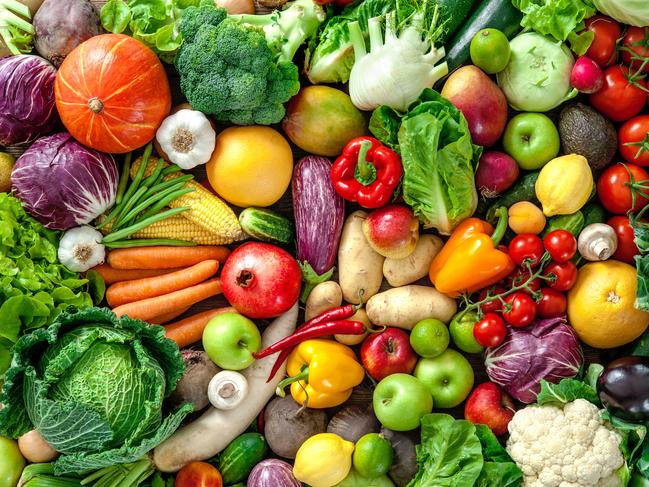
But while veganism has been getting a lot of attention recently, it has actually been around for a very long time. Well, since at least 1944 when a British man named Donald Watson announced that because vegetarians ate dairy and eggs, he was going to create a new term called “vegan”, to describe people who did not, a report by Time magazine states.
WHY IS VEGANISM TRENDING RIGHT NOW?
Social media has a created an awareness of the diet and lifestyle, putting pressure on people to live differently to how we have in the past, leading Australian nutritionist Michele Chevalley Hedge told news.com.au
The author of Eat, Drink & Still Shrink added that people are becoming more aware of how they feed theelves, which is why people are choosing a different path to traditional dietary plans.
“True ethical vegans and vegetarians are doing it because they think they’re helping save the planet by eating less meat and less harm to soil and animals,” she said. “It’s altruistic and I think that’s admirable but you still need nutrient dense food. Many vegans actually live on junk food.”

WHAT CAN A VEGAN EAT?
Vegans mostly eat a range of “natural” products, such as fruits and vegetables, as well as legumes like lentils, beans and chickpeas, according to Mrs Chevalley Hedge. Seeds and nuts are often found in vegan diets as they provide “nutrient density and good quality fats” as well as soy and fermented products and different seaweeds.
Michele added that vegans also eat a variety of grains and seeds such as quinoa, brown rice, and oats, explaining they get most of their protein component from legumes and greens.
WHAT CAN’T A VEGAN EAT?
Vegans don’t eat any meat, including seafood. They also can’t have animal products, such as eggs, milk or cheese. Ingredients derived from animals are also missed out by those living a vegan lifestyle such as certain E numbers and natural flavourings like castoreum, which Healthline explains comes from beaver glands and is used to flavour raspberry tasting lollies and ice-cream.
Other examples include gelatine and some vitamin supplements as many are made with things such as fish oil and sheep wool. Even honey is off the menu Mrs Chevalley Hedge explained, saying that particular food item often “shocks” people when they discover it’s vegan.
It's not just consuming products derived from animals, wearing them is also a definite no no. Vegans will not wear leather or have a shellac nail treatment, as the shiny glaze that makes the beauty treatment so popular comes from a substance secreted by female lac insects.
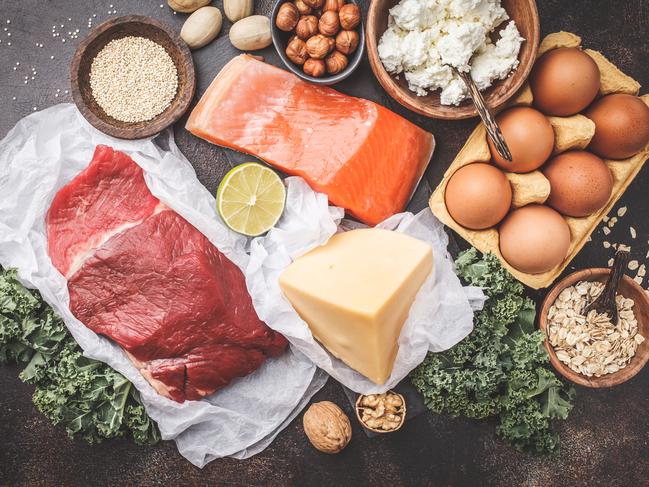
CONCERNS WITH THE VEGAN DIET
Mrs Chevalley Hedge told news.com.au a vegan diet can be incredibly varied, but many vegans often fall victim to eating junk food because “it’s cheap and easy to turn to”. There are many treat-type foods in Australia that vegans are able to eat as well as carb-heavy items — both of which aren’t considered healthy in large amounts.
However, her main concern about the vegan diet is the depletion in a vital mood-boosting vitamin found only in meat.
“The biggest concern I have with the vegan diet, and I never discriminate against food groups, is that when people feel energised, full of vitality, this is a signal the diet is working.
“But research on this diet shows it can be low in iron and vitamin B12, which can affect energy levels, leaving vegan followers tired and lethargic.”
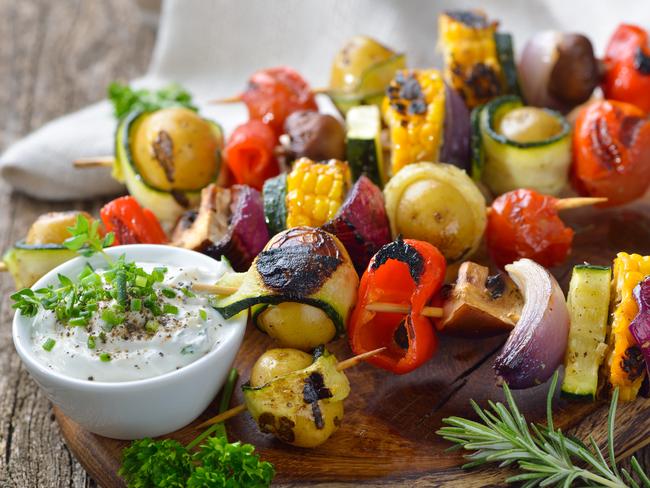
Mrs Chevalley Hedge says it’s completely manageable with supplements, but something vegans and people thinking of switching to the diet should be aware of.
“Have blood tests done regularly and can stay on top of it,” she advises.
Fellow nutritionist Susie Burrell has issued the same warning to news.com.au earlier this year, saying vegans need to plan meals to make sure they aren’t missing out on important nutrients.
“Most vegans will require a certain amount of planning each day and targeting core foods such as fortified milks, legumes, nuts and seeds to get the right mix of nutrition every day,” Ms Burrell told news.com.au
The average serve of meat, fish or chicken contains 20-30g of protein compared with a cup of legumes or wholegrains containing 8-15g.
BUSTING VEGAN DIET MYTHS
People will often confuse vegans with people who are gluten free — but that’s a common misconception, Mrs Chevalley Hedge told news.com.au
Vegans can have foods that contain gluten, such as wheat noodles, bread and pasta. Of course, some vegans may also be coeliac or gluten intolerant, ruling it out for those people. But it’s not a compulsory part.
Mrs Chevalley Hedge said she sees many patients who believe being vegan will enhance weight loss.
“I always say this, what’s the best diet for weight loss? It’s the one you’re able to stick to and it becomes a habit,” she said. “The vegan diet doesn’t have a calorie count so you can still overeat. Quite often people who become vegans gain weight, as they eat more carbs and fats than before.
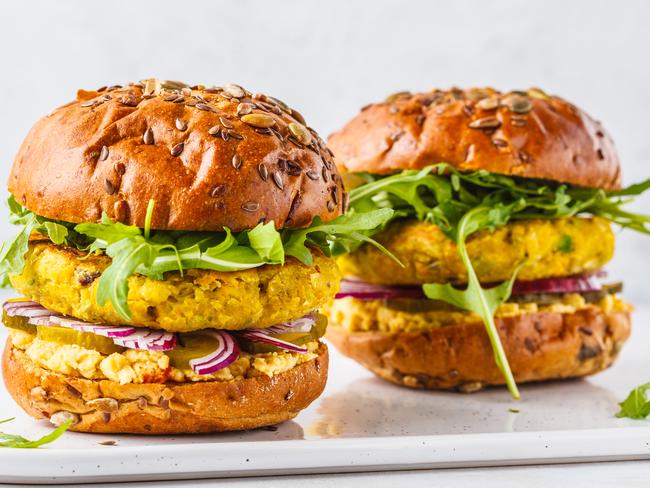
Another myth is that people believe a vegan diet is automatically healthy, Michel said.
“There are many foods that fall in the ‘occasional treat’ category, for example a Tim Tam biscuit can be vegan. People have this perception that it’s healthy, of course it can be just like any diet — but it’s not exclusively healthy. It is what you make it to be,” she said.
A full list of “accidentally vegan” foods — products that aren’t necessarily designed to be animal product free, but are — that are available in Australia can be found on Peta.
NUTRITIONAL COMPARISONS
According to the Dietitians Association of Australia (DAA), a piece of grilled, beef rump steak with its fat fully trimmed has 31.7g of protein per 100g; chicken breast, baked, lean but with skin is 27.9g of protein/100g; and white snapper brushed with olive oil, grilled is 27g of protein/100g.
What does a vegan have to eat to get the same amount of protein?
• Tofu, hard (may vary depending on brand): 12g protein per 100g. You would need 200g tofu to get 24g protein
• Tempeh: 19g protein per 100g. You would need 150g tempeh to get 27g protein
• Chickpeas, drained: 6.3g protein per 100g. You would need 400g chickpeas to get 25g protein
• Almonds 100g: 38.41g protein per 100g
• Cashews 100g: 29.73g protein per 100g
• Tahini unhulled: 24g protein per 100g — 1 tablespoon is 15g
It is important to note that the above values are approximates and are not a complete list of suitable vegan protein
“Actual intake should vary depending on individual needs and should be recommended by an APD”, a DAA spokesperson said.
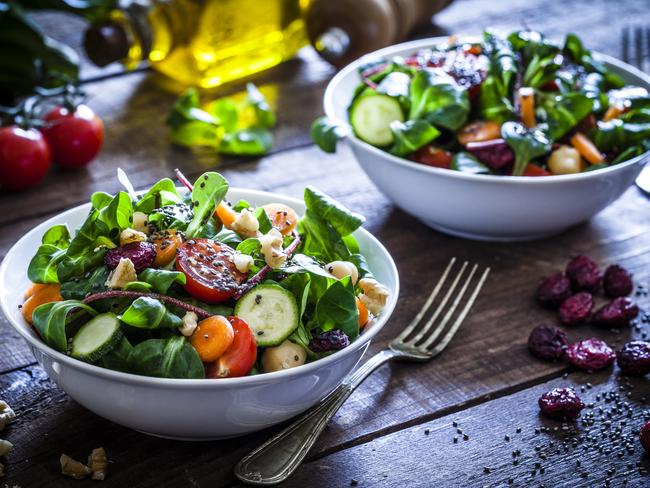
BENEFITS AND EFFECTS OF VEGANISM
Vegans say not only is there an environmental benefit to their approach but also health benefits, such as improved gut health, reduced risk of heart disease, type 2 diabetes and cancer.
Dr Ambika Satija, of the Department of Nutrition at the Harvard T.H. Chan School of Public Health, examined the dietary data of about 209,000 adults across two decades.
According to her research, which was published in the Harvard Medical School’s Harvard Health Publishing in 2017, people who followed a healthy plant-based diet had the lowest risk of heart disease, with their bodies also looking a lot leaner.
This included eating whole grains, fruits, vegetables, nuts, legumes and healthy oils.
But those who followed an unhealthy plant-based diet — fruit juices, refined grains, fries and sugar-sweetened beverages — had a substantially higher risk of heart disease.
“While this study didn’t look at which animal foods, especially meat, could have an impact on heart health, other research has shown that, as with plant foods, the type and amount matter most,” Dr Satija said in the report.
Originally published as Everything you need to know about the vegan diet


